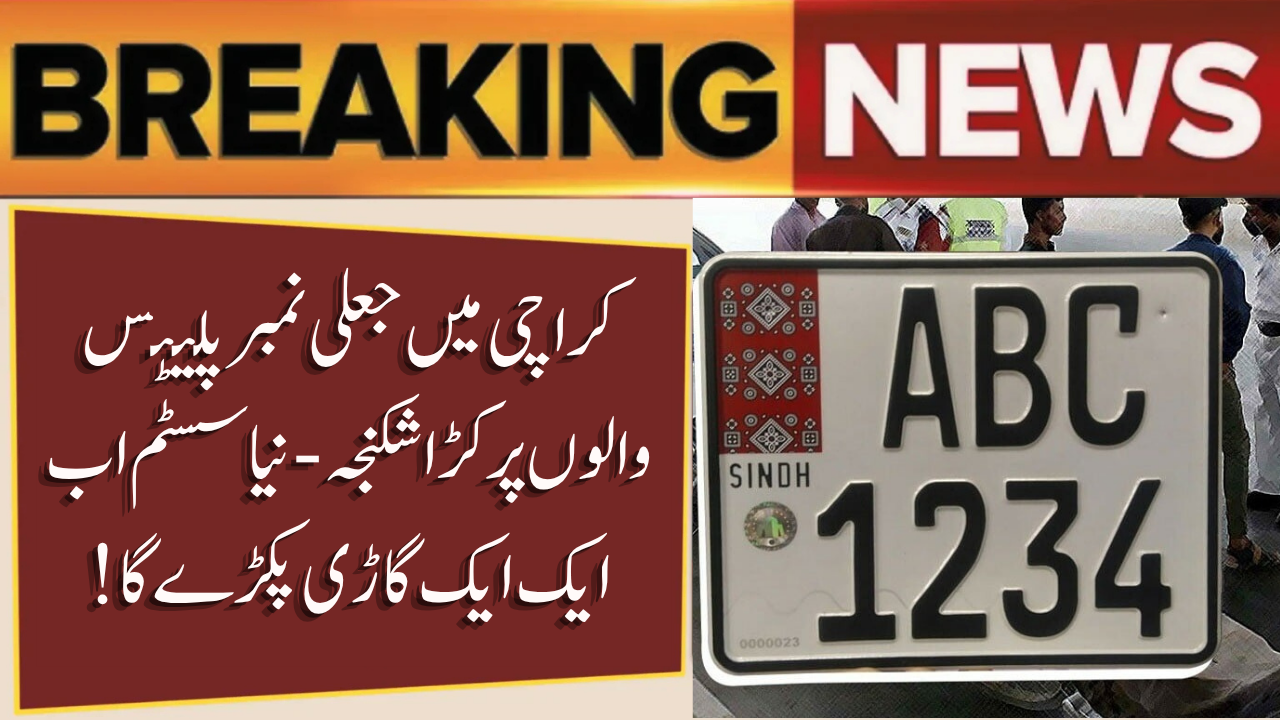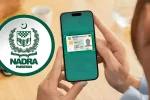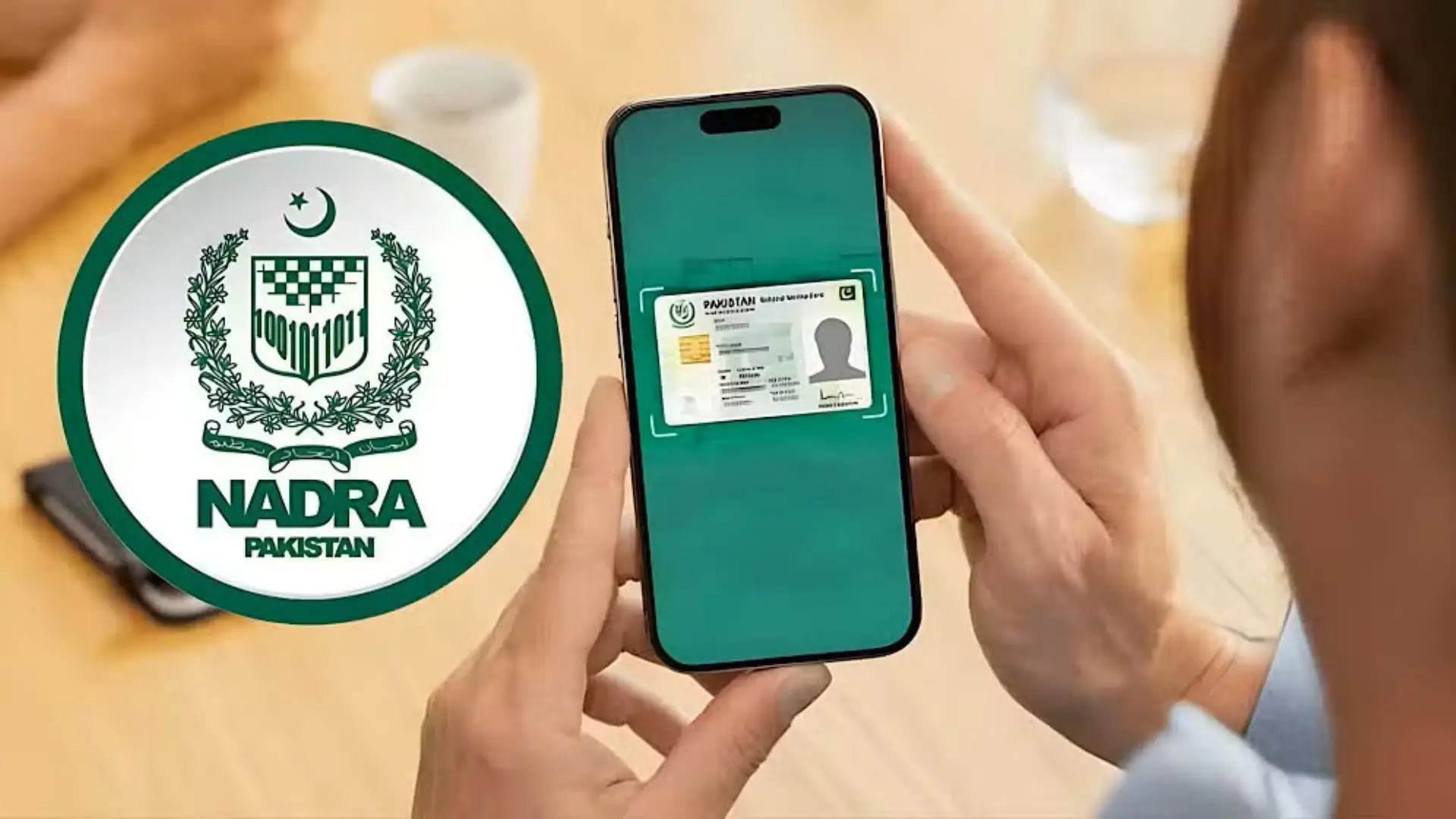Karachi’s traffic authorities have taken a significant step forward in road safety and law enforcement with the introduction of a new Karachi Traffic Surveillance designed to detect fake or tampered number plates instantly. This upgrade aims to curb long-standing issues related to vehicle registration fraud, making the streets safer and helping authorities enforce traffic laws more efficiently.
The initiative, spearheaded by DIG Traffic Pir Muhammad Shah, brings modern technology to a city that has struggled with vehicle-related crimes for decades. With fake number plates being a common method for criminals to evade law enforcement, this system could revolutionize traffic policing in Karachi.
How Karachi’s New System Detects Fake Number Plates
Smart Surveillance Technology at Work
The upgraded traffic system in Karachi integrates advanced smart surveillance cameras capable of analyzing vehicle registration data in real-time. These cameras compare the vehicle’s physical characteristics—such as make, model, and color—with the registration records. Any discrepancy triggers an instant alert to traffic authorities.
For instance, officers recently intercepted a vehicle with black-tinted windows. Upon inspection, they discovered that the number plate did not match any registered record. It was later found that the plate, originally meant for an FX model, was illegally installed on a Vigo. Thanks to this system, such violations are now detected within seconds.
Real-Time Alerts at Major Intersections
Under the Safe City project, smart surveillance vehicles will be strategically deployed at major traffic intersections. These vehicles continuously monitor passing traffic, automatically sending real-time alerts to police officers when suspicious activity or number plate discrepancies are detected.
This not only increases the efficiency of law enforcement but also acts as a deterrent for criminals attempting to use fake number plates. Officers can now intercept offenders immediately, rather than relying on manual checks that were time-consuming and often ineffective.
Benefits of Modern Traffic Surveillance in Karachi
Improved Law Enforcement
Earlier systems in Karachi relied on manual checks that were not IP-based, making it difficult to track stolen or snatched vehicles. With the new digital surveillance system, authorities can now track vehicles more accurately and efficiently. This modern approach is expected to significantly improve recovery rates for stolen vehicles.
Safer Roads for Citizens
By catching vehicles with fake number plates and other registration irregularities, the system directly contributes to road safety. Criminals and reckless drivers are less likely to operate freely, reducing incidents of street crime and traffic violations.
Encouraging Government and Public Support
DIG Pir Muhammad Shah has emphasized that visible improvements in traffic monitoring will foster public trust and encourage further government investment in road safety. Karachi plans to install around 24,000 surveillance cameras, creating a city-wide network capable of monitoring traffic conditions in real-time.
Challenges of Fake Number Plates in Karachi
Fake number plates have long been a challenge in Karachi, complicating law enforcement efforts. Criminals use these plates to:
- Evade traffic fines and penalties
- Conduct illegal activities without being traced
- Bypass vehicle registration checks
Prior to the new system, such activities often went undetected due to the limitations of manual surveillance methods. The introduction of IP-based smart cameras now makes it possible to identify and address these violations instantly.
The Role of Technology in Curbing Traffic Crimes
IP-Based Surveillance Systems
Unlike traditional cameras, IP-based surveillance systems are connected to a digital network that allows continuous monitoring and data sharing. Each camera can analyze vehicle data and cross-reference it with national registration databases, flagging suspicious vehicles for immediate action.
Integration with Police Operations
The real power of Karachi’s upgraded system lies in its integration with police operations. Traffic authorities can now:
- Receive instant alerts for suspicious vehicles
- Track vehicle history digitally
- Dispatch patrol units to intercept offenders immediately
This integration creates a proactive approach to traffic policing, replacing reactive and time-consuming manual checks.
Case Study: Spotting a Fake Number Plate
In a recent incident highlighted by DIG Shah, officers detected a vehicle with a number plate mismatch on the spot. The quick identification prevented potential misuse and highlighted how smart surveillance technology can be a game-changer for Karachi.
The system’s ability to flag inconsistencies in real-time ensures that such crimes are less likely to go unnoticed, reinforcing law enforcement efforts city-wide.
Future Prospects of Karachi Traffic Monitoring
Expanding the Camera Network
Karachi aims to implement approximately 24,000 surveillance cameras under the Safe City project. This ambitious plan will create a comprehensive traffic monitoring network capable of:
- Covering major roads and intersections
- Monitoring vehicle movement in real-time
- Reducing incidents of theft, street crime, and fake number plate usage
Encouraging Public Compliance
With greater surveillance visibility, citizens are expected to adhere more closely to traffic laws, reducing violations such as speeding, illegal parking, and use of tampered number plates. Public cooperation will be crucial in making Karachi’s roads safer and more organized.
Conclusion
The introduction of a new traffic surveillance system in Karachi marks a transformative step toward combating fake number plates and improving road safety. By leveraging smart technology, real-time alerts, and an expanding camera network, authorities can detect, intercept, and prevent violations more efficiently than ever before.
As the Safe City project continues to roll out, residents of Karachi can look forward to safer roads, improved law enforcement efficiency, and a city better equipped to tackle traffic-related crimes. The combination of technology and strategic policing promises a future where fake number plates and vehicle-related criminal activities are increasingly difficult to execute.













